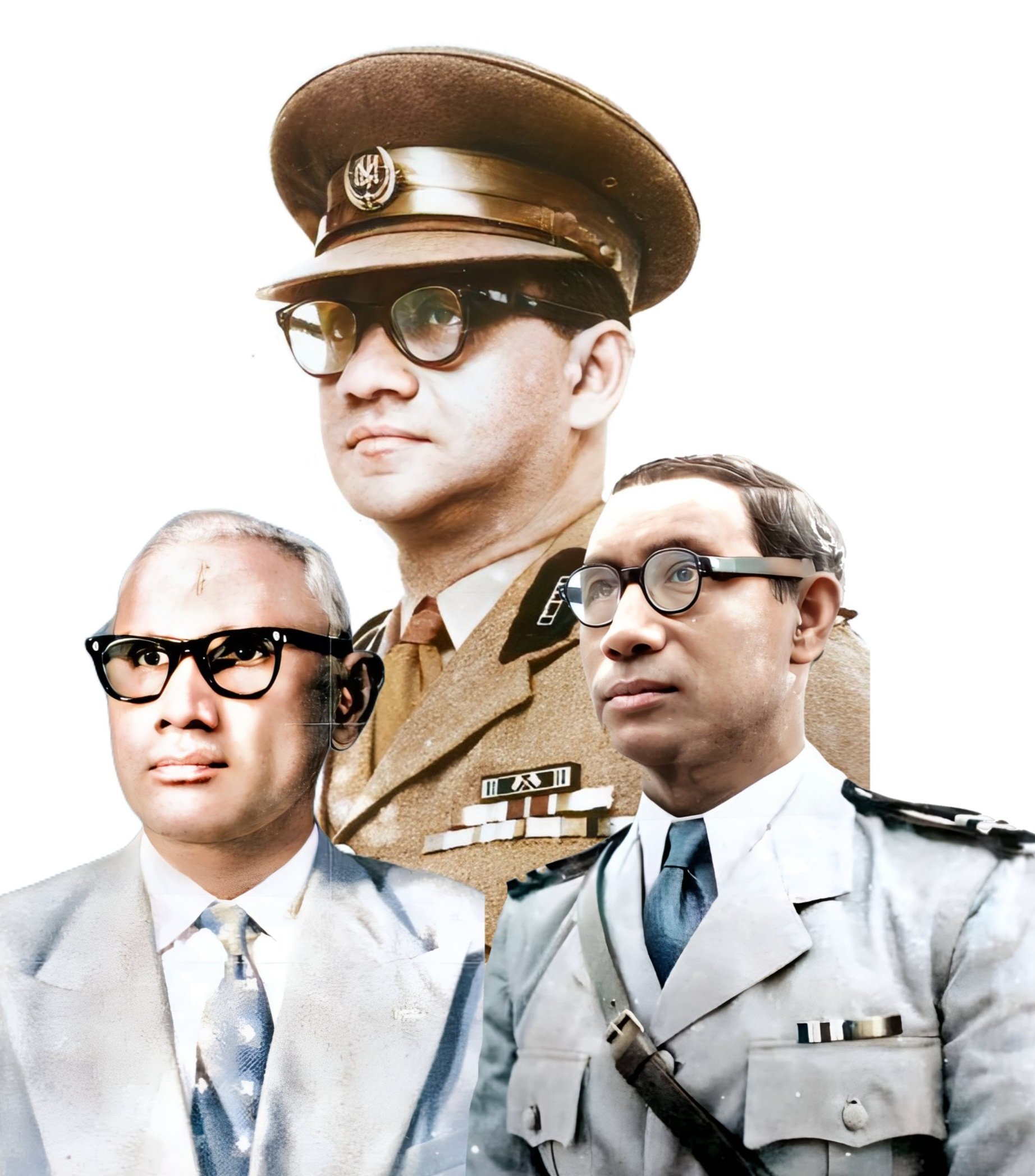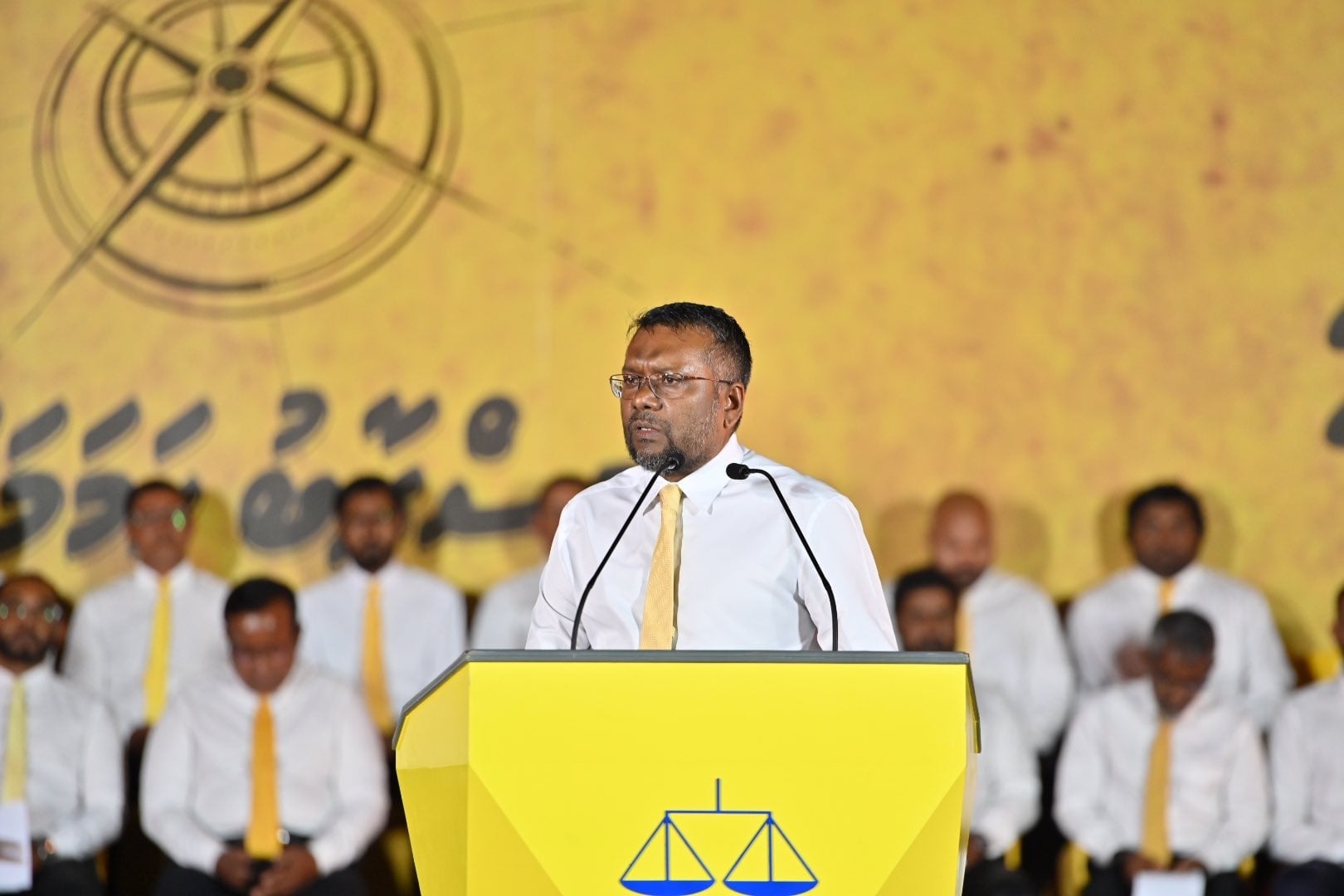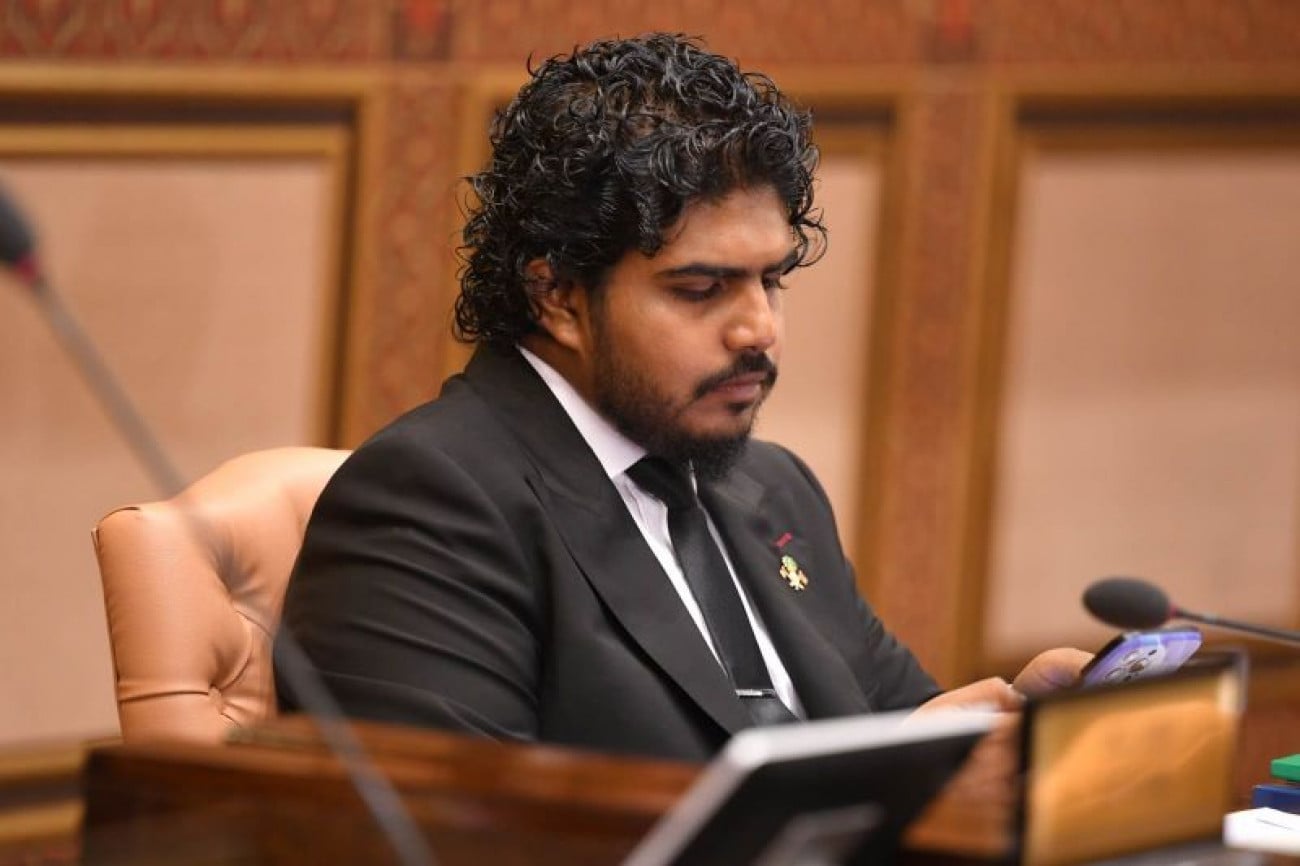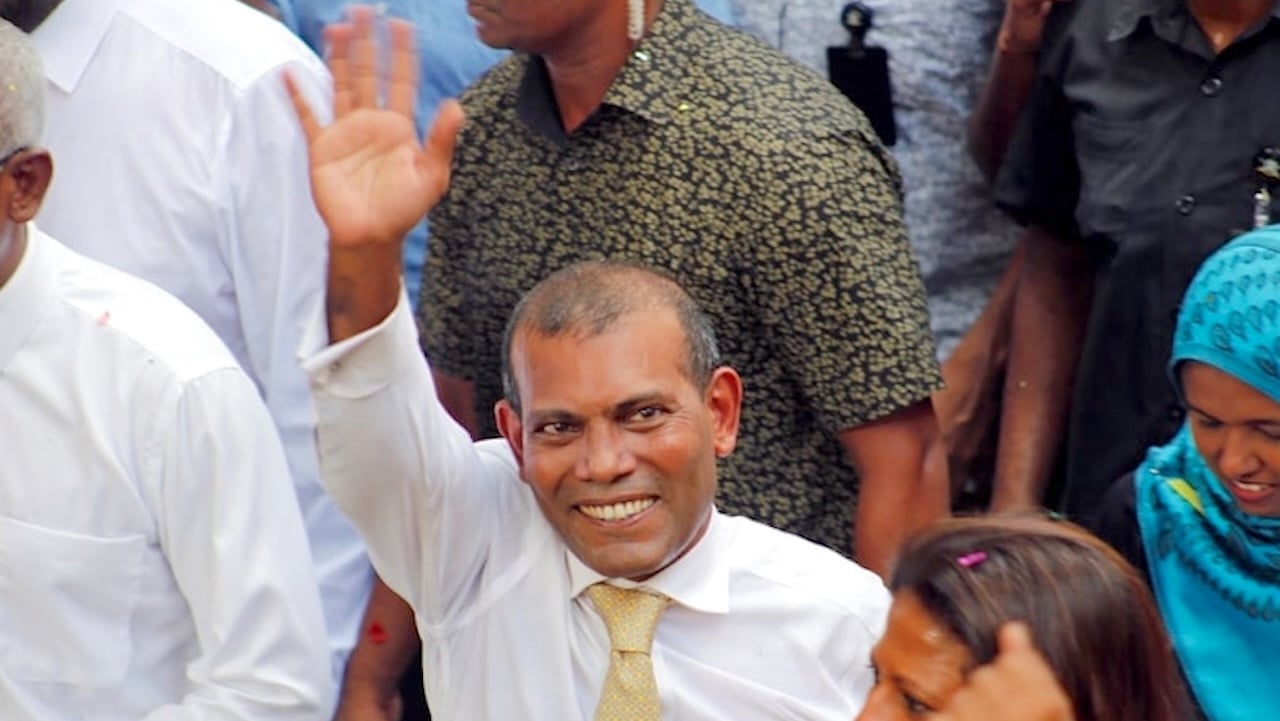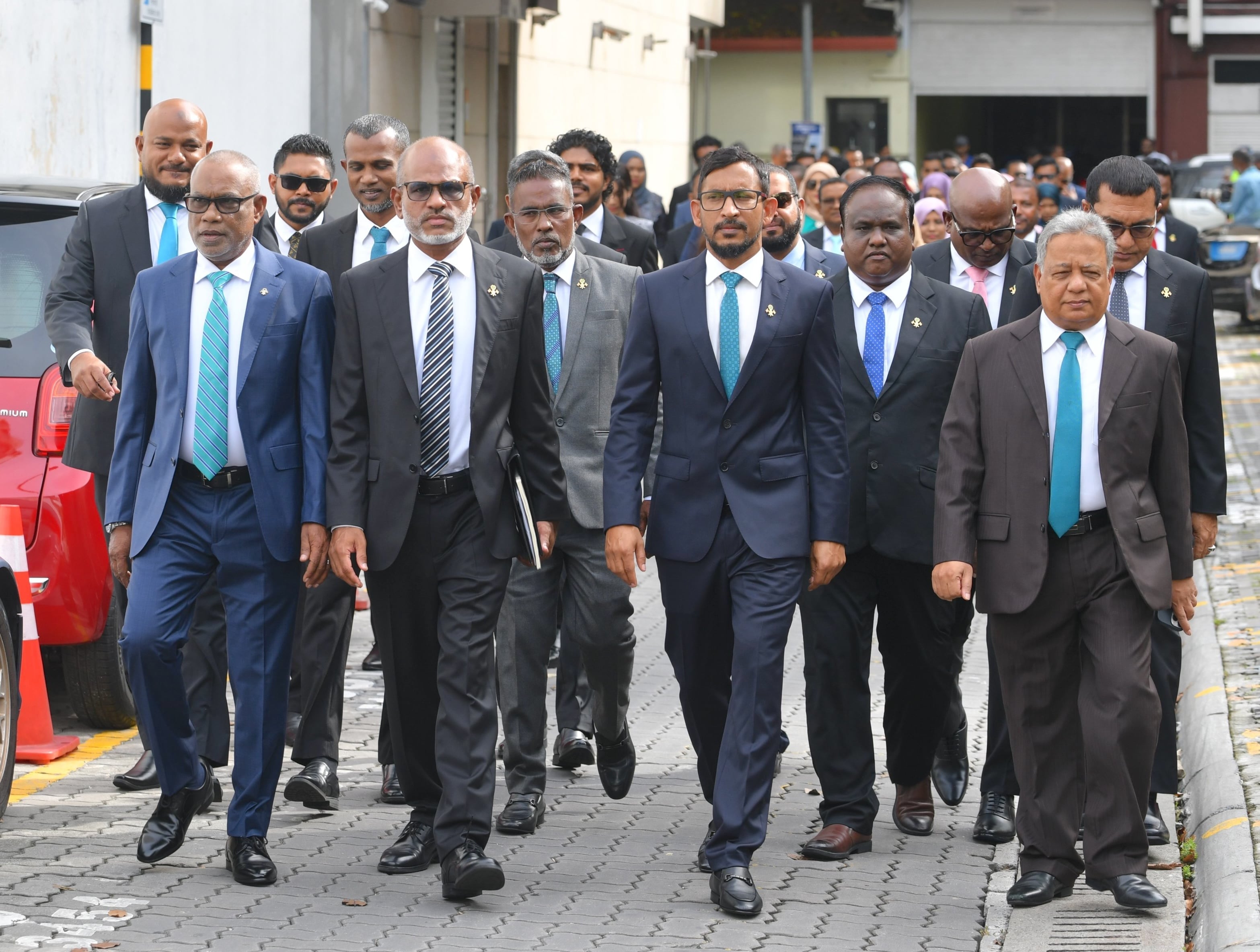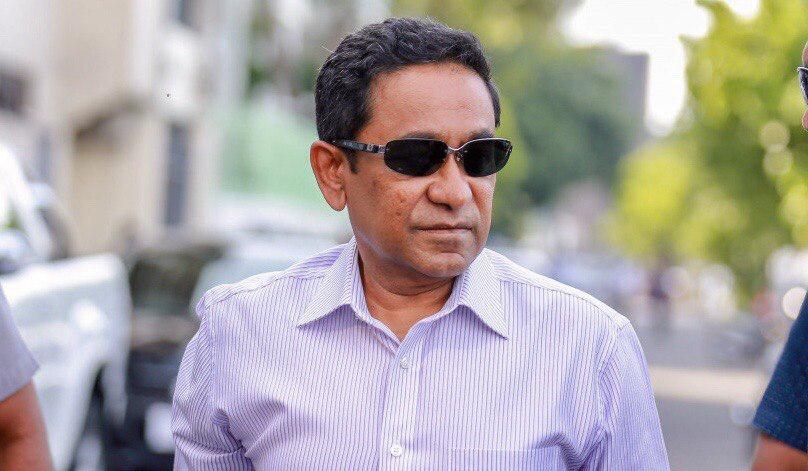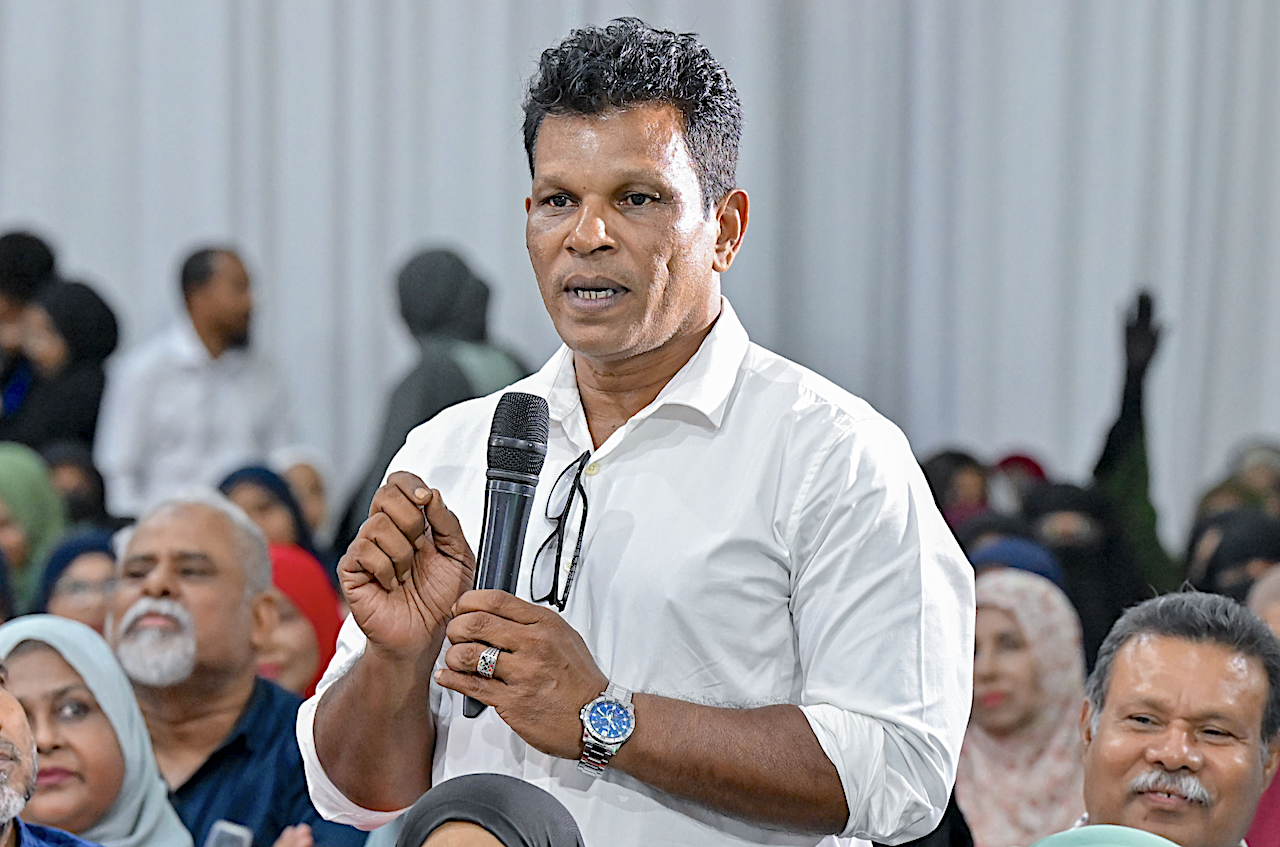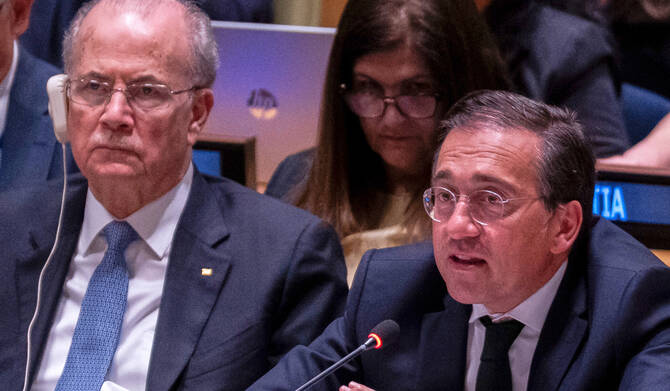The 21st of this month marked 71 years since the end of Athireegey Mohamed Amin Didi's 10-year rule. On Friday, August 21, 1953, which corresponds to the 11th of Dhul-Hijjah 1372 in the Islamic calendar, a pre-planned sudden revolution brought an end to the rule of President Mohamed Amin Didi. At that time, he was in Colombo, returning from a medical trip to India. This is the historic day when the first republican government in the Maldives ended after 7 months and 21 days.
Although Mohamed Amin Didi's republican rule lasted only 7 months and 21 days, his entire term of governance spanned over 10 years. His rule began on April 7, 1943. He started his rule as the Minister of Home Affairs, which was the highest position in state governance under the constitution at that time. Later, from May 31, 1951, he governed as the Prime Minister. The first republic was established, and he took office as president on January 1, 1953.
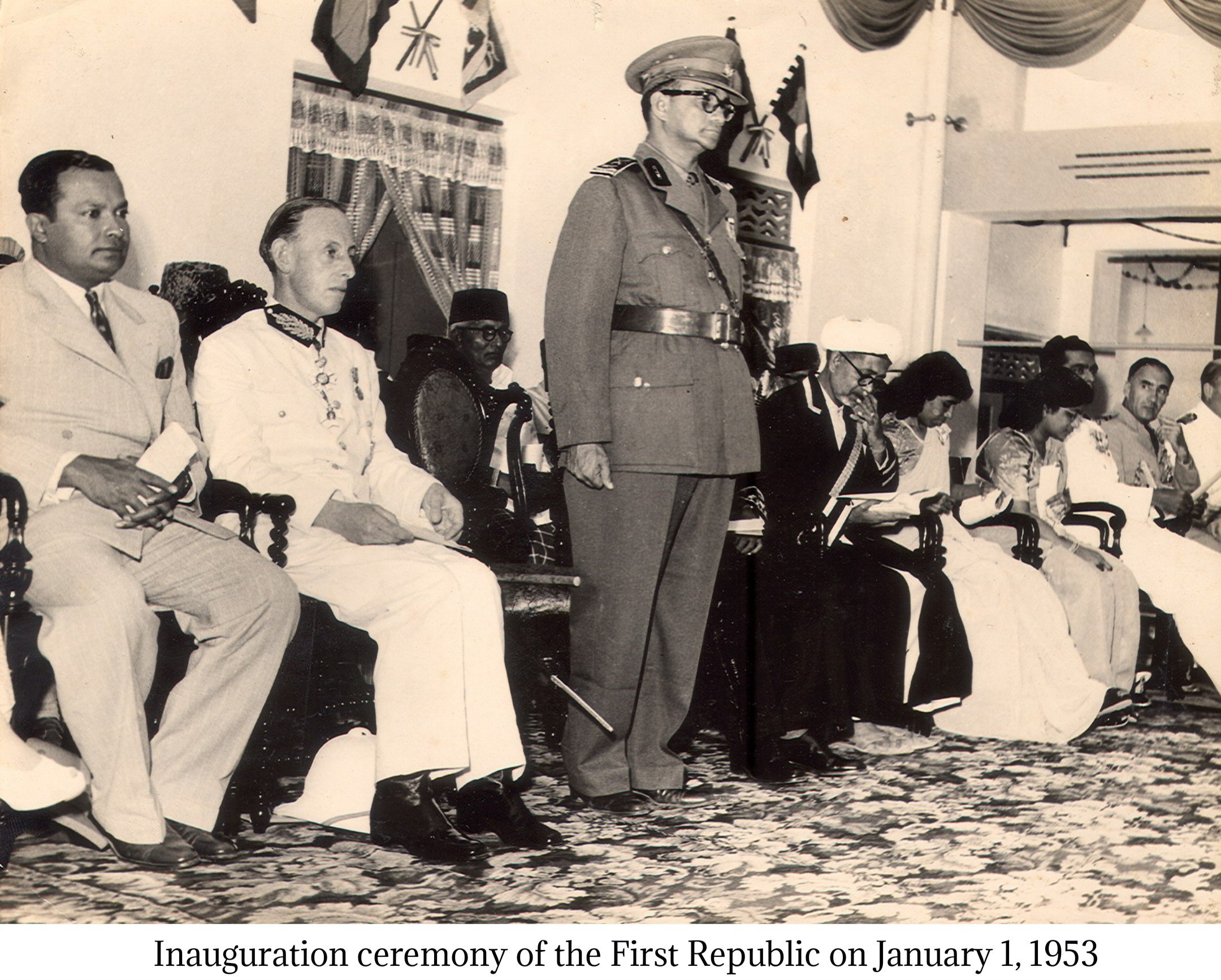
After the aforementioned revolution, on Saturday, August 22, 1953, which corresponded to the 12th of Dhul-Hijjah 1372 AH, the governance of the Maldives was assumed by Eggamugey Ibrahim Faamudheyri Kilegefaanu (Ibrahim Ali Didi) and Velaanaagey (Maajehigey) Ibrahim Mohamed Didi.
Before we look at how their rule proceeded, let us first recap the events of the revolution day. Following Friday prayers, a large crowd gathered at Gulhakulhey Fasgan'du. This is the square in front of the Royal Palace (now Sultan Park). At the time, the Military Headquarters stood where the November 3 Memorial presently stands.
At the time, the Acting Head of State, Vice President Ibrahim Mohamed Didi, stood in front of the Military Headquarters, accompanied by some senior government officials. Gulhakulhey Fasgan'du was packed. The sentiment unanimously expressed by the people was that they had completely lost confidence in President Mohamed Amin Didi. They were calling out that he had violated the principles of Islam and justice, and that the Maldivian people did not want a republic.
In order to save the nation from the persecution and tyranny imposed by Mohamed Amin Didi's governance, the populace requested that Ibrahim Faamudheyri Kilegefaanu and Ibrahim Mohamed Didi assume control of the government. It is said that the main architect of this revolution brought about by mobilizing the people was Ibrahim Mohamed Didi, the Vice President of Amin Didi.
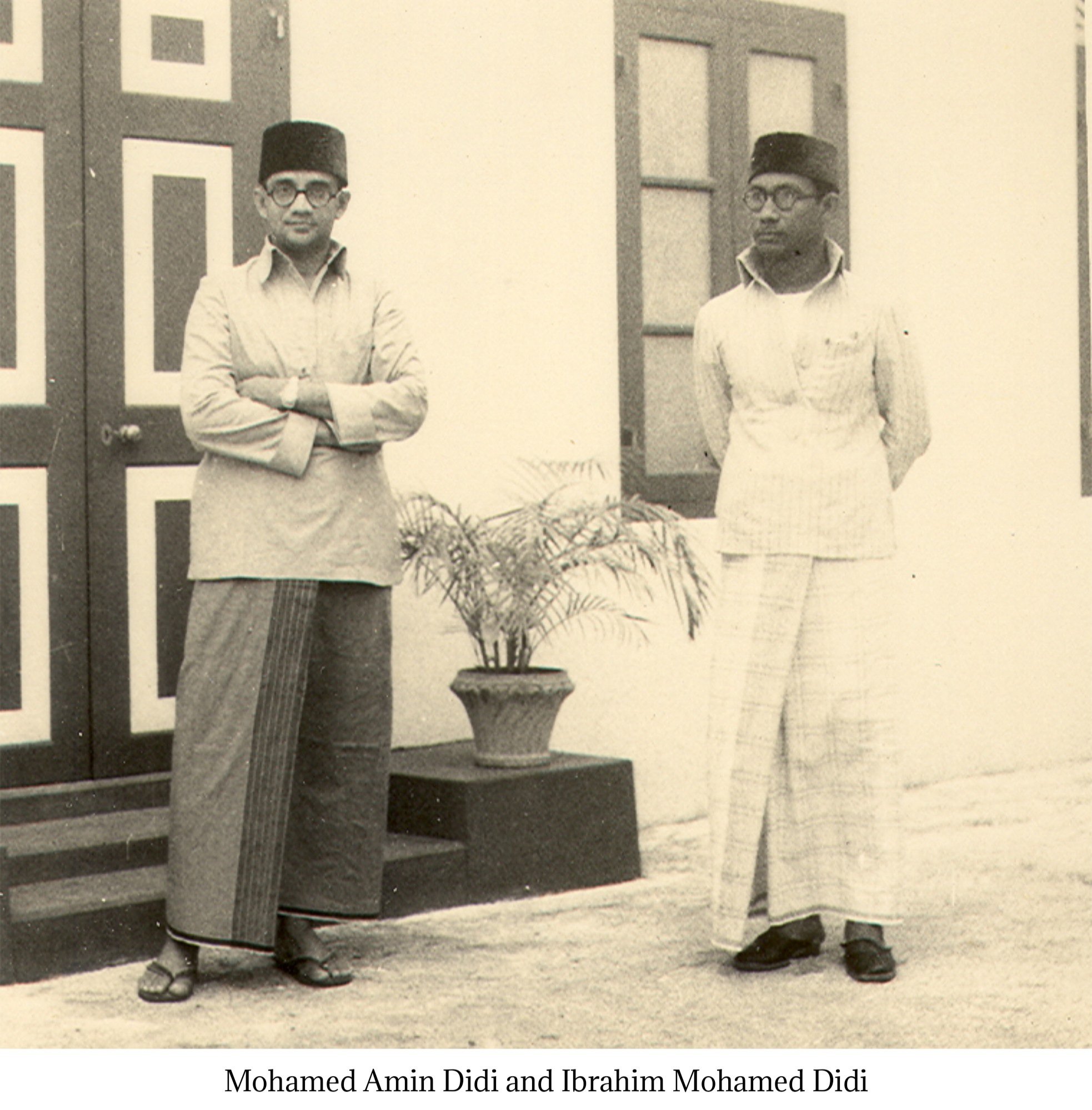
The people declared that they were there to find a capable leader who would respect the principles of Islam, reduce the unnecessary expenses that were ongoing at the time, and who would run the affairs of the state with the people. At this point, a vote of no confidence was also taken and passed against Mohamed Amin Didi. And Ibrahim Faamudheyri Kilegefaanu and Ibrahim Mohamed Didi were appointed as interim leaders to run the country on behalf of the people.
One of the people who witnessed Mohamed Amin Didi's rule most closely was Henveyrugey Ahmed Kamil Didi. Ahmed Kamil Didi served for a long time in ministerial and senior government positions after the first constitution of the Maldives of 1932. According to his writings, Mohamed Amin Didi acted as he pleased with the state treasury, people's property, and some young women.
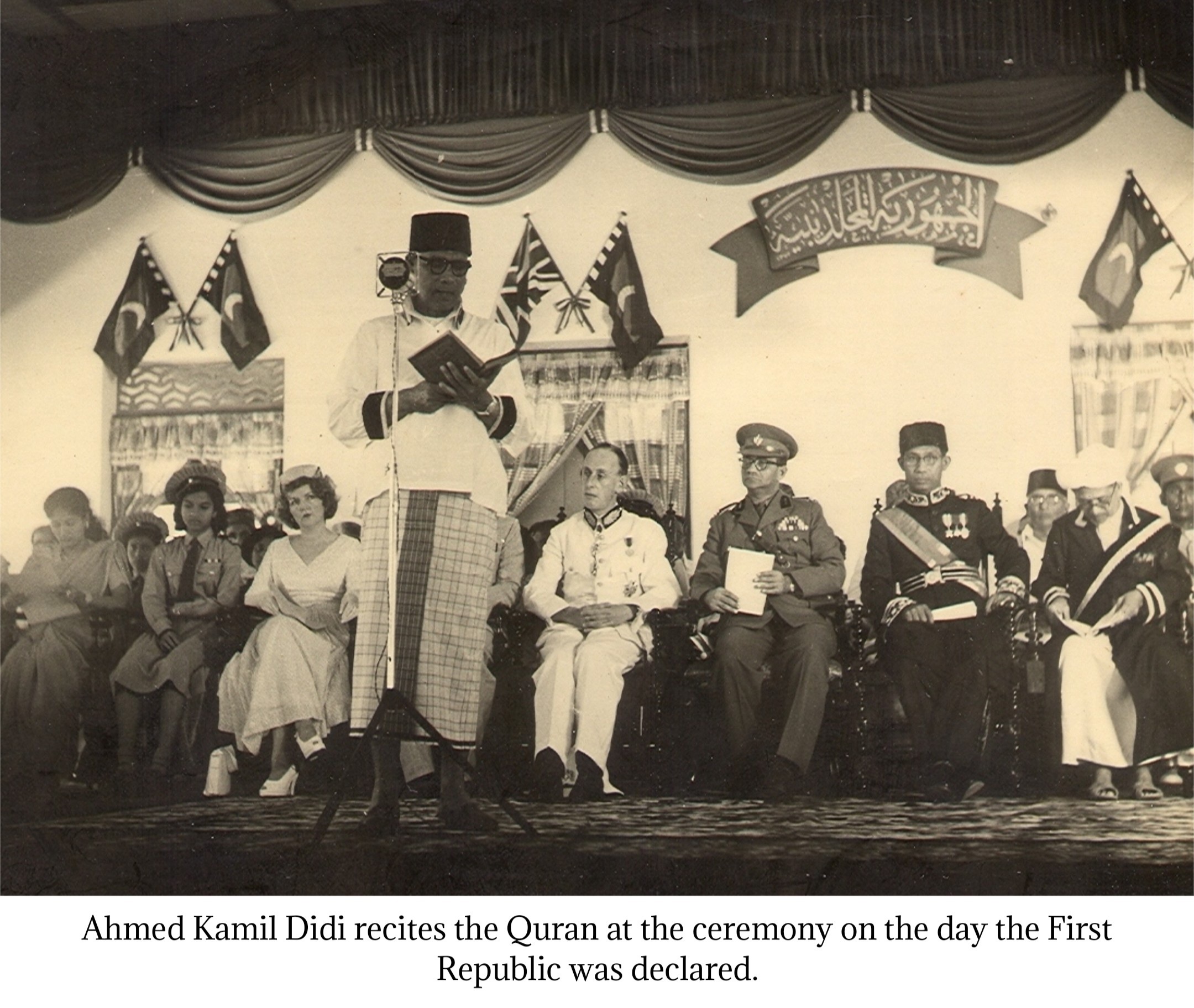
Ahmed Kamil Didi noted in his writings that during Mohamed Amin Didi's rule, the social and economic conditions of the Maldives deteriorated significantly. He also wrote that it had a negative impact on state finances. Additionally, he highlighted that it affected the chastity of some young women.
Furthermore, Ahmed Kamil Didi wrote that some activities carried out under the name of development caused damage to people's property and violated their basic rights. In his writings, he stated that during that time, people's living standards fell to the point that they were forced to eat non-food leaves due to hunger and inability to afford food.
In Ahmed Kamil Didi's view, the government run under the name of republic was in fact an authoritarian regime, and he believed that this regime undermined the country's independence and Islamic identity. He wrote that the responsibility for all of this lies with Mohamed Amin Didi, who was the head of the government at that time. And for these reasons, Ahmed Kamil Didi wrote that the people brought about a revolution and changed the government.
On Revolution Day, the people gathered at Gulhakulhey Fasgan'du announced a list of individuals accused of acting against the interests of the people and the nation in their view. The list included:
- Chief Justice Sheikh Abdullah Jalaluddin
- Minister of Trade Kudadhaharaagey Ibrahim Didi
- Minister of Communications Hassan Ali Didi
- Chief of Henveyru Avah (Ward) Hassan Ranahamaanthi Kaleygefaanu
- Kerafaa Mohamed Kaleygefaanu
- Maizaandorhugey Mohamed Maniku
- Army Commander Bandhu Mohamed Kaleygefaanu
- His brother Bandhu Moosa Kaleygefaanu
- Manager of Bodu Store, Kuda Ibrahim Maniku
- Assistant to the Attorney General, Faamudheyrigey Ahmed Ali Didi
- Assistant to the Attorney General, Un'gulu Moosa Kaleygefaanu
- Buchaa Hassan Kaleygefaanu
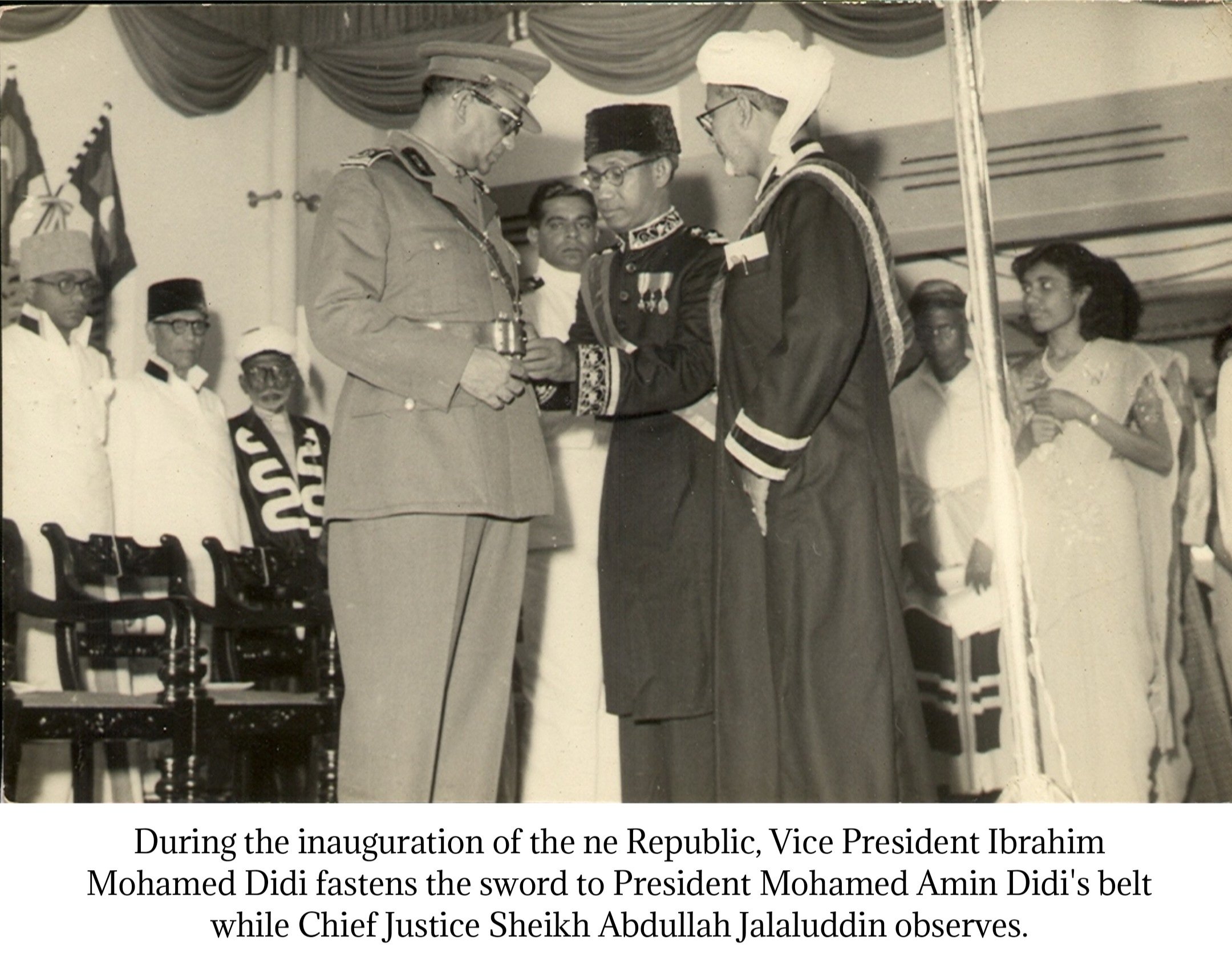
In order to protect the interests of the people and to prevent potential harm to some of the individuals on the list from the gathered crowd, Ibrahim Faamudheyri Kilegefaanu and Ibrahim Mohamed Didi detained the people listed by the public at the Military Headquarters.
On that day, a special advisory committee was also formed to represent all the Avah (wards) of Male' to advise Faamudheyri Kilegefaanu and Ibrahim Didi on behalf of the people. The committee included:
From Henveyru Avah:
• Gasdhorhugey Ahmed Didi
• Sheikh Ibrahim Rushdie
• Velaanaagey Ibrahim Nasir
• Jaariyaa Moosa Fulhu
From Maafannu Avah:
• Ibrahim Fareed Didi
• Ibrahim Shihab
• Ibrahim Zaki
• Mohamed Zaki
From Galolhu Avah:
• Hussain Habib
• Sayyid Ibrahim Haleem
• Edhurugey Don Tuttu Didi
From Machangolhi Avah:
• Ismail Mohamed Didi
• Zakariyya Hassan Kaleygefaanu
• Bagufadiggey Ibrahim Maniku
• Malin Ibrahim Kaleygefaanu
Later, the following members were added to this advisory committee on different occasions:
• Ibrahim Hassan Didi
• Ahmed Kamil Didi
• Koligey Umar Maniku
• Abdul Wahhab Manippulhu
• Mohamed Jameel Didi
• Malin Mohamed Didi
• Fahaagey Mohamed Maniku
As sunset approached on the day of the revolution, public activities intensified again, and people demanded the expulsion of unpopular offenders from Male'. Shortly after, all individuals on the previously submitted list, except for Sheikh Abdullah Jalaluddin (Abdullah Fahmy Didi), were boarded onto boats for exile. Sheikh Abdullah Fahmy Didi, who was in Thulusdhoo at the time, was directly exiled to Thoddoo from that island.
On Saturday, August 22, 1953, Ibrahim Faamudheyri Kilegefaan and Ibrahim Mohamed Didi began governing the Maldives based on the advice of the Advisory Committee or the Revolutionary Committee. As their first act, these two leaders dispatched two delegations to the atolls to inform them of the revolution in Male' and to ascertain the feelings of the people on the outer islands. The tours performed by these delegations demonstrated that the residents of the atolls desired political change.
During their rule, they brought representatives from the islands and Male', including local leaders and ordinary citizens, to express their concerns and desires. After identifying the difficulties and issues faced by the people, they resolved these matters in accordance with the people's wishes. Among the issues they addressed were the prohibition of cutting down trees, the prevention of house demolitions, the cessation of various fees collected from citizens, and the lifting of the ban on tobacco products.
With the beginning of the reign of Faamudheyri Kilegefaanu and Ibrahim Didi, work began on drafting a constitution to abolish the republic and re-establish the monarchy. And they dissolved the 'Rayyithunge Mutaqaddim Party' (People's Progressive Party), the first political party in the Maldives, which was according to them "created by Mohamed Amin Didi to strengthen his own power." They also delegated the power of judicial decision-making of the Ministry of Justice to a committee of religious scholars.
On the fifth day after the revolution of August 1953 that ended Mohamed Amin Didi's rule, Ibrahim Mohamed Didi, one of the two leaders who had taken over the government, sent a wireless message to Mohamed Amin Didi, who was in Colombo, stating that there was unrest in Male', and requesting him to return to the Maldives immediately.
Upon receiving the message from Ibrahim Mohamed Didi, his Vice President, Mohamed Amin Didi arrived in Maldives on August 31, 1953, on a Royal Air Force aircraft, despite being aware of the dangers of coming to Male'. The revolutionary government had already announced Mohamed Amin Didi's arrival to the public through a proclamation made at the main squares of Male's four wards. They had also appealed to the people to remain calm and obedient.
Around 1 PM that afternoon, the RAF aircraft arrived and landed between Funadhoo and Male'. By then, the northern beach of Male' was crowded with people. Revolutionary leaders and state officials were on the main jetty. Then, Faamudheyri Kilegefaanu and Ibrahim Mohamed Didi went in a rowboat to the aircraft. After that, as soon as Muhammad Amin boarded the boat, it set its course towards Dhoonidhoo and began to row.
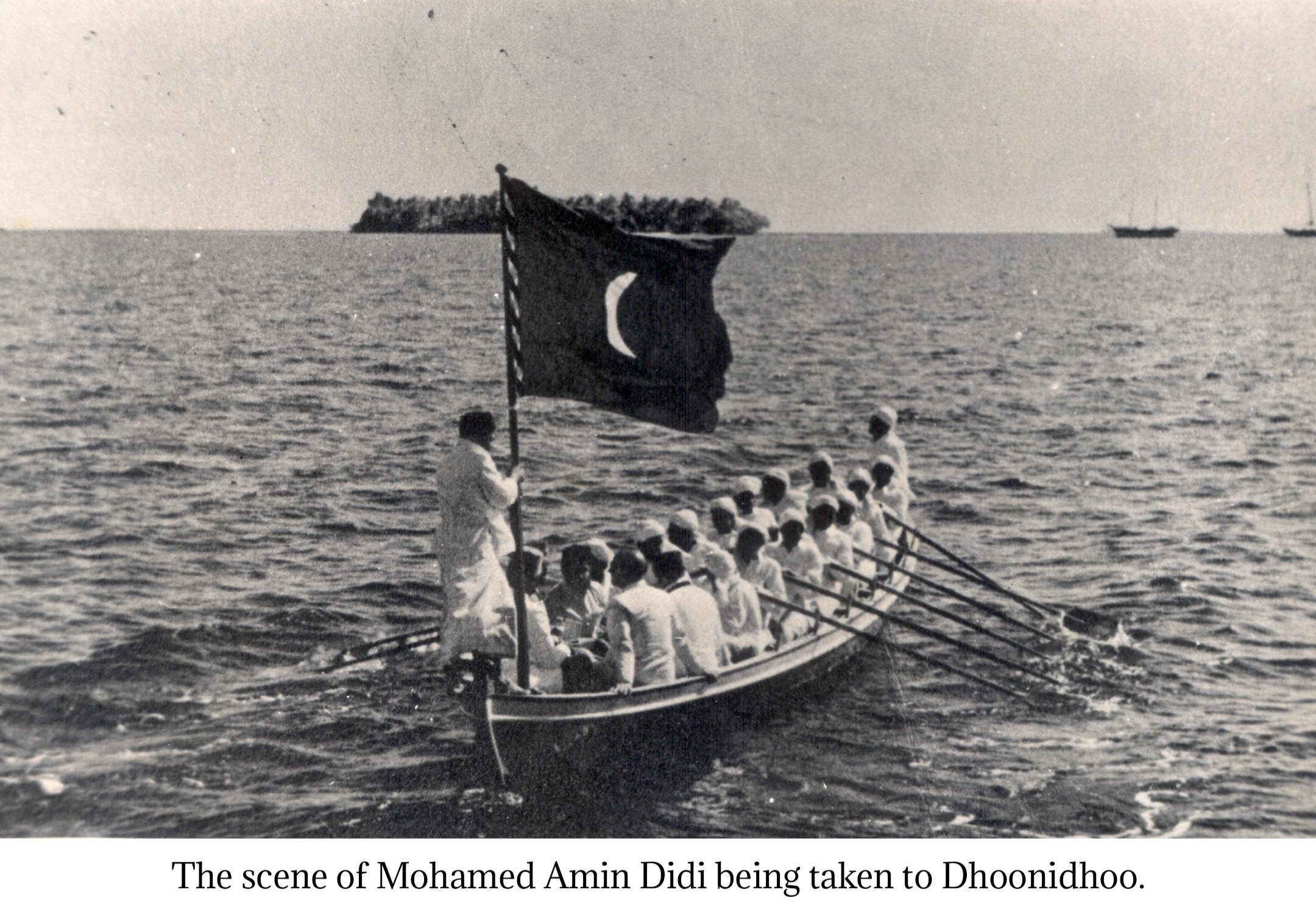
It is said that when the boat was directed towards Dhoonidhoo, Mohamed Amin Didi ordered to go to Male'. Ibrahim Mohamed Didi reportedly opposed this, stating that the people were angry and that's why he was being taken to Dhoonidhoo. However, Mohamed Amin Didi reportedly said that if he was taken to Male', he would calm the people's anger and fulfill their demands. But ignoring this statement, they steered the boat and docked at Dhoonidhoo. Afterwards, Mohamed Amin Didi was removed from all government positions he held and was detained in Dhoonidhoo. This ended the 10-year rule of Mohamed Amin Didi.
Although Mohamed Amin Didi's republican rule lasted only 7 months and 21 days, his entire term of governance spanned over 10 years. His rule began on April 7, 1943. He started his rule as the Minister of Home Affairs, which was the highest position in state governance under the constitution at that time. Later, from May 31, 1951, he governed as the Prime Minister. The first republic was established, and he took office as president on January 1, 1953.

After the aforementioned revolution, on Saturday, August 22, 1953, which corresponded to the 12th of Dhul-Hijjah 1372 AH, the governance of the Maldives was assumed by Eggamugey Ibrahim Faamudheyri Kilegefaanu (Ibrahim Ali Didi) and Velaanaagey (Maajehigey) Ibrahim Mohamed Didi.
Before we look at how their rule proceeded, let us first recap the events of the revolution day. Following Friday prayers, a large crowd gathered at Gulhakulhey Fasgan'du. This is the square in front of the Royal Palace (now Sultan Park). At the time, the Military Headquarters stood where the November 3 Memorial presently stands.
At the time, the Acting Head of State, Vice President Ibrahim Mohamed Didi, stood in front of the Military Headquarters, accompanied by some senior government officials. Gulhakulhey Fasgan'du was packed. The sentiment unanimously expressed by the people was that they had completely lost confidence in President Mohamed Amin Didi. They were calling out that he had violated the principles of Islam and justice, and that the Maldivian people did not want a republic.
In order to save the nation from the persecution and tyranny imposed by Mohamed Amin Didi's governance, the populace requested that Ibrahim Faamudheyri Kilegefaanu and Ibrahim Mohamed Didi assume control of the government. It is said that the main architect of this revolution brought about by mobilizing the people was Ibrahim Mohamed Didi, the Vice President of Amin Didi.

The people declared that they were there to find a capable leader who would respect the principles of Islam, reduce the unnecessary expenses that were ongoing at the time, and who would run the affairs of the state with the people. At this point, a vote of no confidence was also taken and passed against Mohamed Amin Didi. And Ibrahim Faamudheyri Kilegefaanu and Ibrahim Mohamed Didi were appointed as interim leaders to run the country on behalf of the people.
One of the people who witnessed Mohamed Amin Didi's rule most closely was Henveyrugey Ahmed Kamil Didi. Ahmed Kamil Didi served for a long time in ministerial and senior government positions after the first constitution of the Maldives of 1932. According to his writings, Mohamed Amin Didi acted as he pleased with the state treasury, people's property, and some young women.

Ahmed Kamil Didi noted in his writings that during Mohamed Amin Didi's rule, the social and economic conditions of the Maldives deteriorated significantly. He also wrote that it had a negative impact on state finances. Additionally, he highlighted that it affected the chastity of some young women.
Furthermore, Ahmed Kamil Didi wrote that some activities carried out under the name of development caused damage to people's property and violated their basic rights. In his writings, he stated that during that time, people's living standards fell to the point that they were forced to eat non-food leaves due to hunger and inability to afford food.
In Ahmed Kamil Didi's view, the government run under the name of republic was in fact an authoritarian regime, and he believed that this regime undermined the country's independence and Islamic identity. He wrote that the responsibility for all of this lies with Mohamed Amin Didi, who was the head of the government at that time. And for these reasons, Ahmed Kamil Didi wrote that the people brought about a revolution and changed the government.
On Revolution Day, the people gathered at Gulhakulhey Fasgan'du announced a list of individuals accused of acting against the interests of the people and the nation in their view. The list included:
- Chief Justice Sheikh Abdullah Jalaluddin
- Minister of Trade Kudadhaharaagey Ibrahim Didi
- Minister of Communications Hassan Ali Didi
- Chief of Henveyru Avah (Ward) Hassan Ranahamaanthi Kaleygefaanu
- Kerafaa Mohamed Kaleygefaanu
- Maizaandorhugey Mohamed Maniku
- Army Commander Bandhu Mohamed Kaleygefaanu
- His brother Bandhu Moosa Kaleygefaanu
- Manager of Bodu Store, Kuda Ibrahim Maniku
- Assistant to the Attorney General, Faamudheyrigey Ahmed Ali Didi
- Assistant to the Attorney General, Un'gulu Moosa Kaleygefaanu
- Buchaa Hassan Kaleygefaanu

In order to protect the interests of the people and to prevent potential harm to some of the individuals on the list from the gathered crowd, Ibrahim Faamudheyri Kilegefaanu and Ibrahim Mohamed Didi detained the people listed by the public at the Military Headquarters.
On that day, a special advisory committee was also formed to represent all the Avah (wards) of Male' to advise Faamudheyri Kilegefaanu and Ibrahim Didi on behalf of the people. The committee included:
From Henveyru Avah:
• Gasdhorhugey Ahmed Didi
• Sheikh Ibrahim Rushdie
• Velaanaagey Ibrahim Nasir
• Jaariyaa Moosa Fulhu
From Maafannu Avah:
• Ibrahim Fareed Didi
• Ibrahim Shihab
• Ibrahim Zaki
• Mohamed Zaki
From Galolhu Avah:
• Hussain Habib
• Sayyid Ibrahim Haleem
• Edhurugey Don Tuttu Didi
From Machangolhi Avah:
• Ismail Mohamed Didi
• Zakariyya Hassan Kaleygefaanu
• Bagufadiggey Ibrahim Maniku
• Malin Ibrahim Kaleygefaanu
Later, the following members were added to this advisory committee on different occasions:
• Ibrahim Hassan Didi
• Ahmed Kamil Didi
• Koligey Umar Maniku
• Abdul Wahhab Manippulhu
• Mohamed Jameel Didi
• Malin Mohamed Didi
• Fahaagey Mohamed Maniku
As sunset approached on the day of the revolution, public activities intensified again, and people demanded the expulsion of unpopular offenders from Male'. Shortly after, all individuals on the previously submitted list, except for Sheikh Abdullah Jalaluddin (Abdullah Fahmy Didi), were boarded onto boats for exile. Sheikh Abdullah Fahmy Didi, who was in Thulusdhoo at the time, was directly exiled to Thoddoo from that island.
On Saturday, August 22, 1953, Ibrahim Faamudheyri Kilegefaan and Ibrahim Mohamed Didi began governing the Maldives based on the advice of the Advisory Committee or the Revolutionary Committee. As their first act, these two leaders dispatched two delegations to the atolls to inform them of the revolution in Male' and to ascertain the feelings of the people on the outer islands. The tours performed by these delegations demonstrated that the residents of the atolls desired political change.
During their rule, they brought representatives from the islands and Male', including local leaders and ordinary citizens, to express their concerns and desires. After identifying the difficulties and issues faced by the people, they resolved these matters in accordance with the people's wishes. Among the issues they addressed were the prohibition of cutting down trees, the prevention of house demolitions, the cessation of various fees collected from citizens, and the lifting of the ban on tobacco products.
With the beginning of the reign of Faamudheyri Kilegefaanu and Ibrahim Didi, work began on drafting a constitution to abolish the republic and re-establish the monarchy. And they dissolved the 'Rayyithunge Mutaqaddim Party' (People's Progressive Party), the first political party in the Maldives, which was according to them "created by Mohamed Amin Didi to strengthen his own power." They also delegated the power of judicial decision-making of the Ministry of Justice to a committee of religious scholars.
On the fifth day after the revolution of August 1953 that ended Mohamed Amin Didi's rule, Ibrahim Mohamed Didi, one of the two leaders who had taken over the government, sent a wireless message to Mohamed Amin Didi, who was in Colombo, stating that there was unrest in Male', and requesting him to return to the Maldives immediately.
Upon receiving the message from Ibrahim Mohamed Didi, his Vice President, Mohamed Amin Didi arrived in Maldives on August 31, 1953, on a Royal Air Force aircraft, despite being aware of the dangers of coming to Male'. The revolutionary government had already announced Mohamed Amin Didi's arrival to the public through a proclamation made at the main squares of Male's four wards. They had also appealed to the people to remain calm and obedient.
Around 1 PM that afternoon, the RAF aircraft arrived and landed between Funadhoo and Male'. By then, the northern beach of Male' was crowded with people. Revolutionary leaders and state officials were on the main jetty. Then, Faamudheyri Kilegefaanu and Ibrahim Mohamed Didi went in a rowboat to the aircraft. After that, as soon as Muhammad Amin boarded the boat, it set its course towards Dhoonidhoo and began to row.

It is said that when the boat was directed towards Dhoonidhoo, Mohamed Amin Didi ordered to go to Male'. Ibrahim Mohamed Didi reportedly opposed this, stating that the people were angry and that's why he was being taken to Dhoonidhoo. However, Mohamed Amin Didi reportedly said that if he was taken to Male', he would calm the people's anger and fulfill their demands. But ignoring this statement, they steered the boat and docked at Dhoonidhoo. Afterwards, Mohamed Amin Didi was removed from all government positions he held and was detained in Dhoonidhoo. This ended the 10-year rule of Mohamed Amin Didi.





